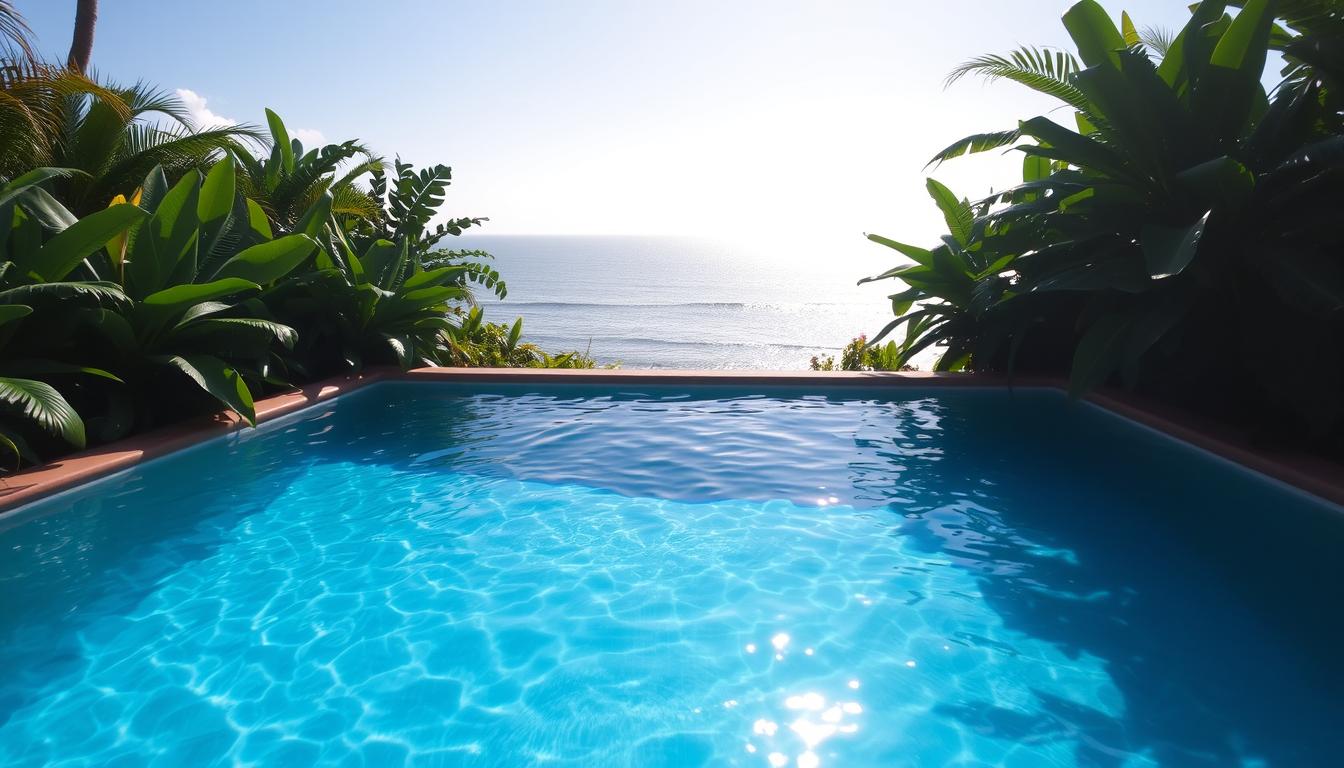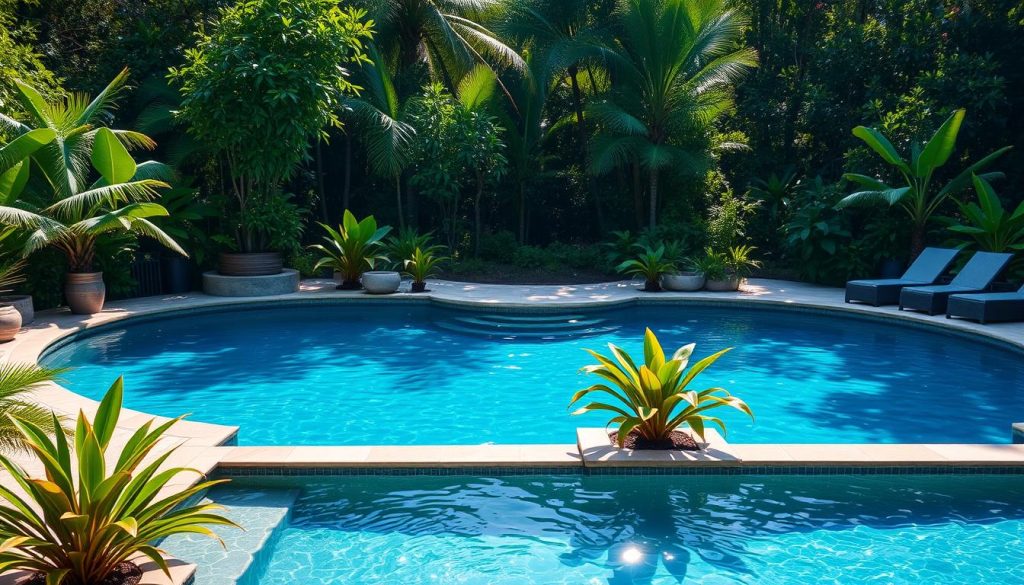
Saltwater pools make less chlorine than regular pools. This makes them kinder to your skin and eyes. Experts say these pools can give you a healthier swim.
Saltwater pools blend ocean and home salt bath benefits. They’re cheaper and easier to maintain. These pools also offer many health perks for your skin.
The salt level in these pools matches human tears. This means less chance of irritation. The salt can help with skin problems like psoriasis, eczema, and acne.
The Benefits of Saltwater Pools for Skin Health
Saltwater pools offer a gentler approach to pool sanitation. They provide a chemical-free experience that’s kinder to our skin. These pools use natural sanitizers instead of traditional chlorine.

Gentle Exfoliation and Softening Effects
Saltwater pools gently exfoliate your skin as you swim. Salt particles act as a natural scrub, removing dead skin cells. This leaves your skin feeling smooth and refreshed.
The salt in the water also helps soften your skin. Many swimmers enjoy the silky, supple texture it provides.
Reduced Irritation Compared to Chlorinated Pools
Saltwater pools have a lower risk of skin irritation than chlorinated ones. They use much less chlorine, about 3,500 parts per million. This is far lower than traditional pools.
The salt concentration in these pools is similar to human tears. This means less stinging and irritation for swimmers.
| Pool Type | Chlorine Concentration (ppm) | Skin Irritation Potential |
|---|---|---|
| Saltwater Pool | 3,500 | Low |
| Chlorinated Pool | 1,000 – 3,000 | Moderate to High |
Potential Benefits for Skin Conditions like Eczema and Psoriasis
Saltwater pools may help those with sensitive skin or conditions like eczema and psoriasis. The minerals in the water can soothe irritated skin. They may also promote a healthier complexion.
Some people report improvements in their skin conditions after regular saltwater swimming. However, always consult a dermatologist before using pool therapy as treatment.
I’ve noticed a significant improvement in my eczema since I started swimming in a saltwater pool. My skin feels softer, smoother, and less prone to flare-ups.
Saltwater pools can benefit skin health, but results may vary. Some people might experience dryness or irritation. To avoid this, rinse before and after swimming.
Apply moisturizer to keep your skin hydrated. Use protective hair products to prevent damage from salt water exposure.
How Saltwater Pools Work: A Closer Look
Saltwater pools offer a gentler swimming experience than traditional chlorine pools. They use electrolysis to clean the water. This process takes place within the saltwater generator.
The Process of Electrolysis in Saltwater Generators
Saltwater pools contain dissolved salt at 3,000 to 4,000 parts per million. The water passes through the generator, undergoing electrolysis. This converts salt into chlorine gas, which dissolves to form hypochlorous acid.
Hypochlorous acid is the main sanitizing agent in the pool. It kills bacteria, algae, and other contaminants. This keeps the water clean and safe for swimming.
Maintaining Cleanliness and Sanitation with Lower Chlorine Levels
Saltwater pools need lower chlorine levels than traditional pools. The generator constantly produces chlorine, maintaining steady sanitation. Pool owners only add one or two salt bags per season.
This is cheaper than buying chlorine tablets or granules regularly. Lower chlorine levels mean fewer chloramines. These compounds cause strong odors and potential skin and eye irritation.
Installing a saltwater pool system costs more upfront. However, long-term maintenance costs are usually lower. With proper care, a salt chlorine generator can last 3-5 years.
That’s about 10,000 hours of operation. Saltwater pools offer a comfy, cost-effective, and eco-friendly swim experience.







